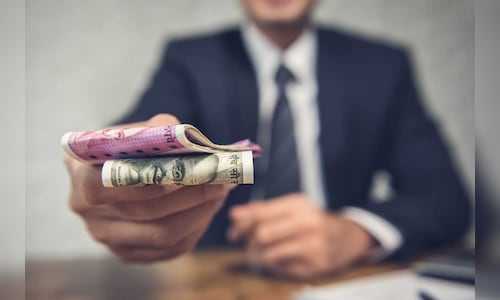

| Company | Value | Change | %Change |
|---|
Prepaid vouchers: Treated as ‘money’
Prepaid vouchers, such as gift cards and digital wallets, are recognised by the Reserve Bank of India (RBI) as prepaid instruments. These vouchers are treated as ‘money’ under the GST framework.
As a result, transactions involving prepaid vouchers will not be considered as the supply of goods or services for GST purposes.
Instead, they are viewed as a method of payment, like cash.
Non-prepaid vouchers: Classified as ‘actionable claims’
Non-prepaid vouchers do not qualify as prepaid instruments. These vouchers grant the holder the right to receive specific goods or services and are classified as ‘actionable claims.’
Similar to prepaid vouchers, transactions involving these vouchers are not subject to GST, as they are not considered the supply of goods or services.
Transactions involving vouchers: GST implications
Regardless of the type of voucher, transactions involving the voucher itself do not attract GST.
However, the goods or services that can be redeemed using the vouchers may still be subject to GST.
Distribution models for vouchers: GST impact
The CBIC also provided guidance on the GST treatment of voucher distribution.
There are two primary models for distributing vouchers:
Principal-to-principal basis
In this model, distributors purchase vouchers from issuers at discounted prices and sell them to sub-distributors or customers.
Since these transactions do not qualify as the supply of goods or services, they are not subject to GST.
Commission/fee basis
Distributors and agents in this model work on behalf of the voucher issuer, providing marketing and support services in exchange for a commission or fee. Since the transaction is a service, the commission or fee is subject to GST.
Additional services and unused vouchers
For distributors or service providers offering additional services like advertising or customer support to voucher issuers, these services are subject to GST.
The service fee charged for such services will attract GST according to applicable rates.
Regarding unused vouchers, the CBIC clarified that if vouchers expire and go unredeemed (referred to as ‘breakage’), no supply of goods or services occurs.
Therefore, the money from these unredeemed vouchers is not subject to GST.
Vivek Jalan, Partner at Tax Connect Advisory Services LLP, further explained the classification of vouchers under GST.
He stated, “Vouchers are pre-payment instruments defined by the RBI, which means they create an obligation for the supplier to accept them as payment for goods or services. If a customer buys a ₹10,000 voucher for a store, GST applies to the goods purchased, not the voucher itself.”
Jalan further elaborated, “If the RBI does not define a voucher as a prepaid instrument, it would be considered an ‘actionable claim’ under the GST Act. Actionable claims, except for activities like gambling, are not subject to GST.”
What this means for businesses
Businesses need to be aware that while the sale or purchase of vouchers does not trigger GST, any commissions or service fees related to voucher transactions will be subject to GST.
The upcoming amendments in the GST framework, expected in the next budget, aim to clear up any ambiguities in voucher taxation.



